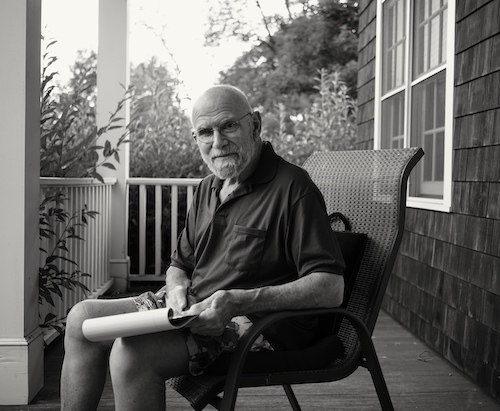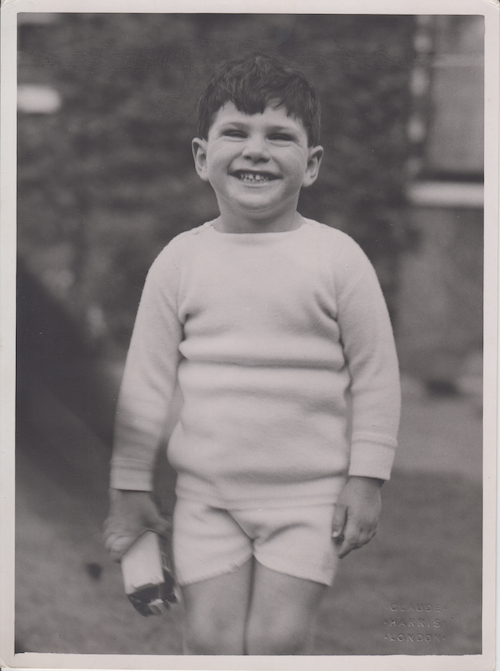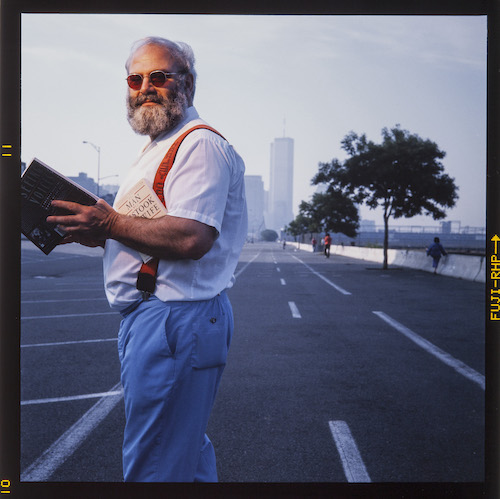Communiqué
Famed Neurologist & Writer “Oliver Sacks: His Own Life” on AMERICAN MASTERS – April 9 at 9 pm
< < Back toAmerican Masters Announces Broadcast Premiere of
Oliver Sacks: His Own Life April 9 on PBS
Film by Ric Burns tells the inspirational story of the famed neurologist and writer
American Masters announced the broadcast premiere of the documentary Oliver Sacks: His Own Life Friday, April 9 at 9 p.m. on PBS, at pbs.org/oliversacks and on the PBS Video app. The two-hour film explores the life and work of the legendary neurologist and storyteller as he shares intimate details of his battles with drug addiction, homophobia and a medical establishment that embraced his work only decades after the fact.

Photo Credit: Bill Hayes
In February 2015, a few weeks after receiving a terminal cancer diagnosis, Oliver Sacks sat down with Emmy- and Peabody Award-winning filmmaker Ric Burns for a series of interviews in his apartment in New York City. For 80 hours, surrounded by family, friends and notebooks from six decades of thinking and writing about the brain, he talked about his life and work, his abiding sense of wonder at the natural world and the place of human beings within it. Drawing on these deeply personal reflections, as well as interviews with close friends, family members, colleagues and patients, and archival material from every point in his life, American Masters—Oliver Sacks: His Own Life is the story of a beloved doctor and writer who redefined our understanding of the brain and mind.
“From the start, this project has been one of the most moving and revelatory I’ve ever had the privilege of being involved with,” said director Ric Burns. “From the moment my colleagues and I walked into his apartment on Horatio Street in New York in February 2015, it was clear that virtually every issue of importance about what it means to live a life and to be a human being was concentrated in his unusual life story: survival, beauty, art, science, storytelling, love, individuality, difference, dignity, autonomy, agency, wonder, language, meaning, consciousness, community, friendship, yearning, loss, connection with something larger.”

From Sacks Archive.
Drawing on these profoundly moving reflections, American Masters—Oliver Sacks: His Own Life also features nearly two dozen deeply revealing and personal interviews with family members, colleagues, patients and close friends, including Jonathan Miller, Robert Silvers, Temple Grandin, Christof Koch, Robert Krulwich, Lawrence Weschler, Atul Gawande, Roberto Calasso, Paul Theroux, Isabelle Rapin, Bill Hayes, Kate Edgar, Mark Homonoff, Jonathan Sacks, Steve Silberman, Shane Fistell and Lowell Handler, among others.
“This was a passion project for not only Ric Burns, but for all the production partners on this thoughtful and emotional film,” said Michael Kantor, Executive Producer of American Masters. “There is so much to learn from Oliver Sacks’ story and so much to be inspired by. We are thrilled to bring this program to a broad and diverse public television audience.”
“Oliver Sacks is one of those rare people who opens our eyes to new ways of seeing our fellow humans and ourselves,” said Head of HHMI Tangled Bank Studios Sean B. Carroll. “We are proud to have had the opportunity to work with this talented team of storytellers to shine a light on the remarkable life of one of the most inspirational physicians and influential writers of our lifetime.”

© 1990 Ken Shung
The filmmakers had unparalleled access to the extensive archives of the Oliver Sacks Foundation. The materials helped them share the life story of an extraordinary physician and writer who was dogged by his own neuroses and by the rejection of his medical colleagues as he nonetheless redefined for millions of readers the nature of the human mind, through the simple act of telling profoundly compassionate stories. The film also illuminates the exploration of the science of human consciousness and the nature of subjectivity, and provides a meditation on the deep and intimate relation between art and science and storytelling.
“Oliver led an extraordinary life,” said Burns. “But he also left all of us a lesson for how to think about our lives as we confront our own mortality.”
American Masters—Oliver Sacks: His Own Life, which the Los Angeles Times called “one of the year’s best docs,” had a limited remote theatrical release last fall, following its successful festival run that kicked off with a world premiere at the Telluride Film Festival.

